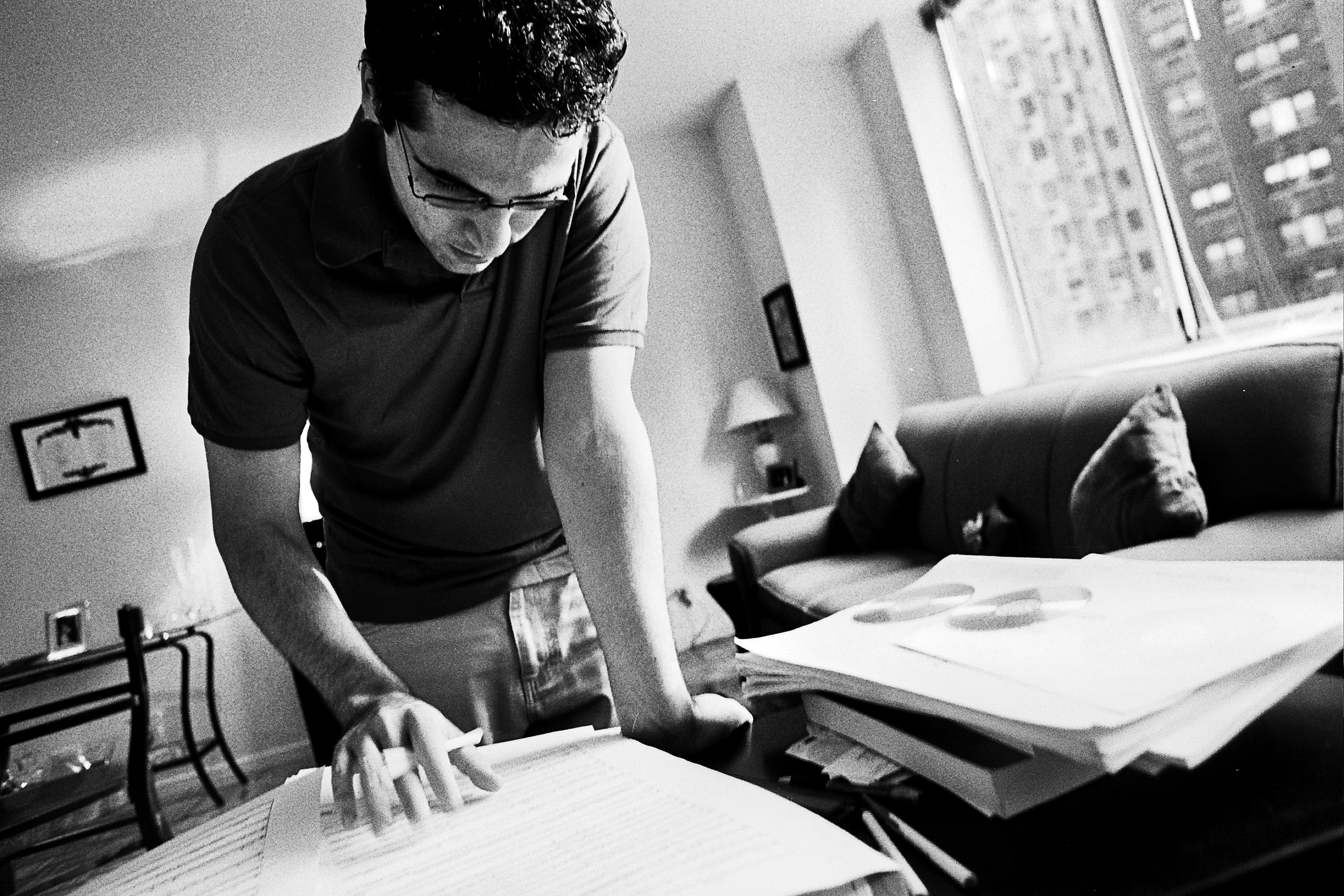






On November 20, Michael Stern conducts Alon Goldstein and the Kansas City Symphony in the premiere of Avner Dorman's new piano concerto Lost Souls. Referring to the work as a "séance for piano and orchestra," Dorman calls on the ghosts of music's past to weave the three movement concerto.
 WebNote
WebNoteListen to Avner Dorman
discuss Lost SoulsFor Dorman, this work is channeled straight from his relationship with the pianist, Alon Goldstein: "Alon seems like he is from a different era — the way he carries himself, his mannerisms — it seems like he was born and lived in the 19th century," Dorman recalls. He wanted to capture Goldstein's special

Avner Dorman © Dan Seltzer quality in this new work and took what he could from their relationship and his knowledge of Goldstein's musicianship — Goldstein has performed Dorman's Piano Sonata No. 2 close to forty times. Dorman explains that Goldstein "can go quite crazy during the sonata, but in the end he is a very refined classical pianist, with all of the notes coming out very clear, as if he had predetermined all of the dynamics and articulations — he has very stylized playing. I wrote this concerto to give him those moments, on the one hand, but to also give him the simple melodies, to give him room to bring out his style."
Lost Souls begins quite dramatically: the pianist, in a departure from all other concerti, is not on stage, but is called from beyond by the orchestra's microtonal séance. As the 'soul-oist' emerges, a tense polytonal dialogue begins between the two worlds and Dorman begins to seemlesly echo various musical styles through his own evolved voice, recalling hints of Bach, Art Tatum, Messiaen, Lutoslawski, Ravel, Ligeti, and Gershwin.
Music history's graveyard is a harrowing resource for many composers; for Dorman, the weight of the past is not a burden, but can be embraced in the present through his own art. As with many works by Avner Dorman, Lost Souls brings together his cultural melange and melds it into a dynamic work that is a combination of his disperate influences — in one moment in Lost Souls, Cuban Bata drums accompany a baroque toccata, that in the end sounds as if it were Arabic in its origin.
Perhaps for Dorman, his own soul has found its place in this globalized culture where Art Tatum and Johann Sebastian Bach converse on the Ouija board of the 21st century, and where these souls of the past can be the inspiration for the future.
Please click here for more News


